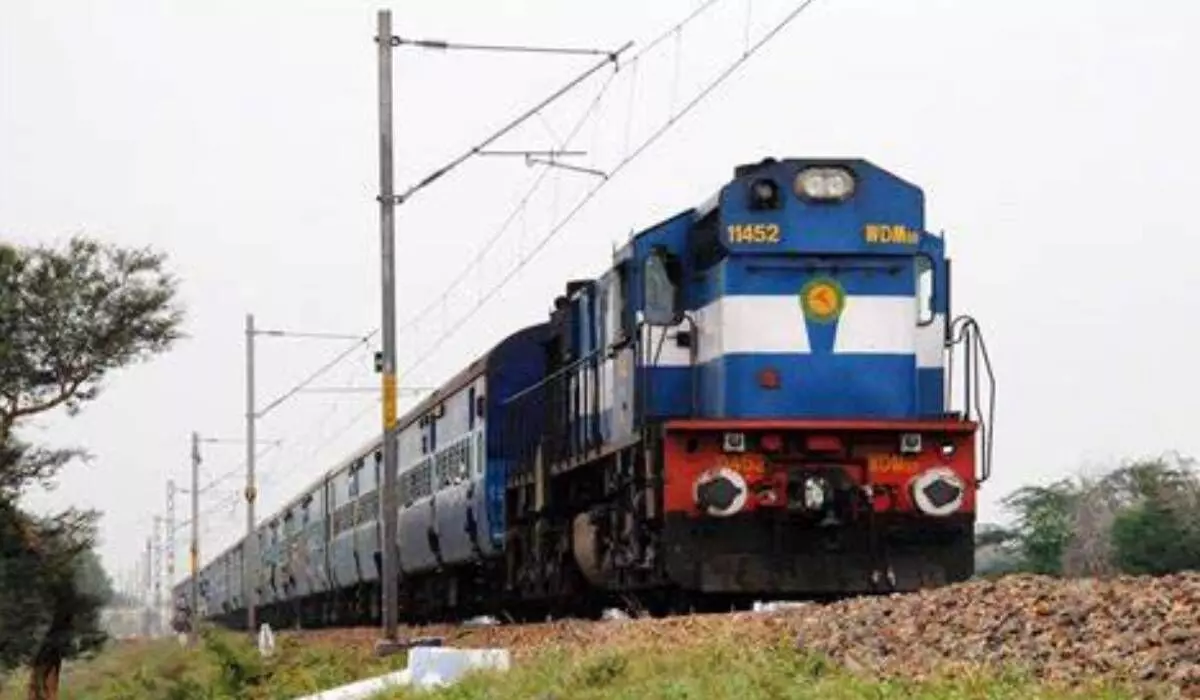Indian Railway's Kavach passed initial tests on Hyderabad routes
Kavach, a system designed to enhance train safety and efficiency, aims to assist locomotive pilots in avoiding accidents caused by Signal Passing At Danger (SPAD) and over speeding. It also provides support during adverse weather conditions such as dense fog. By automatically applying brakes when necessary, Kavach ensures better control over train speed and reduces the risk of potential accidents.
image for illustrative purpose

Kavach, a system designed to enhance train safety and efficiency, aims to assist locomotive pilots in avoiding accidents caused by Signal Passing At Danger (SPAD) and over speeding. It also provides support during adverse weather conditions such as dense fog. By automatically applying brakes when necessary, Kavach ensures better control over train speed and reduces the risk of potential accidents.
The key features of the Kavach system include automatic brake application in case the locomotive pilot fails to respond, line-side signal display in the cabin for improved visibility in foggy conditions and at higher speeds, continuous updating of movement authority, automatic whistling at level crossings, collision avoidance through direct loco-to-loco communication, and an SOS feature to control trains in emergency situations.
Successful trials of Kavach were conducted on the Lingampally–Vikarabad–Wadi and Vikarabad–Bidar sections of South Central Railway, covering a distance of 250 kilometers. As a result, three vendors were approved for further developmental orders on the Indian Railways network.
The total expenditure incurred for the development of Kavach amounts to ₹16.88 crores. The rollout of Kavach is planned on the New Delhi–Howrah and New Delhi–Mumbai sections, with a target completion date of March 2024. The decision for further expansion will be based on the experience gained from the initial implementation.
Shri Ashwini Vaishnaw, the Minister of Railways, Communications, and Electronic & Information Technology, highlighted the government's commitment to ensuring the safety and efficiency of train operations through technological advancements like Kavach. In a written reply to a question in the Lok Sabha, he provided this information, emphasizing the significance of such developments.
However, Kavach gained prominence following a catastrophic train disaster in Balasore district, Odisha. The incident involved a sequence of events resulting in a significant loss of human life, with at least 233 confirmed fatalities and over 900 individuals sustaining injuries. It remains uncertain whether any of the trains involved in the collision were equipped with the Kavach system. Speculations arise, with many arguing that Kavach could have prevented the accident. At present, the exact circumstances surrounding the incident and the potential role of Kavach remain unclear, leaving room for further investigation and analysis.

